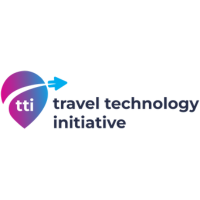Booking & Reservation Systems: What’s Next for the Future of Travel?
)
- Updated: 24 April 2025
- By: Jonathan Carter-Chapman, Marketing Director, Northstar Travel Group
- Topics: Booking Systems, AI in Travel, Reservation Technology, Personalisation, Future of Travel
- Read Time: 9 minutes
Quick Summary
Booking and reservation systems are evolving rapidly, becoming smarter, faster, and more adaptable than ever.
These platforms are no longer just about handling online reservations but are at the heart of the travel industry's digital transformation. Modern systems offer powerful tools for real-time bookings, dynamic packaging, online payments, and seamless customer experiences.
With increased investment in artificial intelligence, personalisation, and cloud-based Travel Management Platforms, reservation technology is enabling travel companies, activity providers, and travel agents to boost efficiency, diversify revenue streams, and improve profitability. As we move deeper into 2025, the future of the booking process is about responding intelligently and effectively to consumer demand, while ensuring every booking experience results in a happy customer.
REGISTRATION NOW LIVE Book Your Stand
Travel Tech Show | 25-26 June 2025 | ExCeL London
Introduction
In an industry where speed, online presence, and superior digital experiences are paramount, booking and reservation systems are taking centre stage in shaping the future of travel.
Once considered back-office utilities, these platforms now drive revenue, expand extensive networks, and deliver a high level of customer service.
Today, thousands of travel agents and activity operators are investing heavily in operator software that not only manages client details and Sales reports but also integrates AI, data, and automation for smarter decision-making. This article explores how reservation software is transforming the industry and what travel businesses need to prioritise to stay competitive.
Enterprise Power, Now More Accessible
One major trend is the democratisation of enterprise-grade travel platform technology. In April 2024, Intuitive Ltd launched its most advanced version of iVector, a comprehensive omni-channel reservation system previously reserved for major players.
Key advanced features of the iVector platform include:
-
Itinerary Builder and Dynamic Packaging
-
Real-time pricing, caching, and online booking integrations
-
Integration with over 250 suppliers via iVectorOne
-
Direct contracting tools and extensive activity operator partnerships
This shift moves the industry away from expensive, siloed systems towards flexible platforms that support a wide range of business models, improving access for OTAs, tour operators, and wholesalers alike.
Booking Tech Tops Travel Tech Priorities
Recent TravelTech Show data (April 2024) shows a strong shift in tech investment priorities:
-
62% of companies expect increased tech budgets in 2025
-
56% will prioritise AI investment
-
32% will focus on improving their online booking and reservation software
-
80% plan to expand AI usage specifically
As the booking process becomes more sophisticated, businesses need booking systems that not only streamline operations but also enhance the online booking experience for both travel agents and direct consumers.
AI’s Expanding Role in the Booking Journey
Artificial Intelligence is now critical to the success of travel companies, online reservations, and Travel Management Platforms. It's being used to:
-
Personalise travel offers based on customer behaviour and preferences
-
Streamline the online booking journey with AI-powered chatbots and virtual assistants
-
Optimise online payments and pricing models using predictive analytics
-
Detect and prevent fraud, especially across an extensive network of travel buyers
According to PhocusWire, companies integrating AI into their booking platforms have seen up to a 20% increase in conversion rates, reduced friction, and a consistently happier customer base.
Customer Experience: Personalisation as a Profit Driver
Modern travellers expect personalised experiences across every touchpoint—whether browsing a travel platform, booking activities, or managing reservations via mobile.
New booking systems embed loyalty programs, client details, and historical preferences directly into the booking process. Innovations include:
-
Real-time bundling of flights, hotels, and activities
-
Loyalty integrations with discount codes and promotions
-
Geo-personalisation based on user location and travel intent
McKinsey research shows that travel brands with strong personalisation strategies can drive up to a 25% increase in repeat bookings and spend per customer.
Automation: Solving Operational Pressures
Staffing shortages and inflation pressures have driven many companies to automate the booking process. Automated emails, self-service online payments, real-time bookings, and dynamic pricing models are now standard.
68% of travel businesses say technology is helping them mitigate inflation and staffing challenges. Meanwhile, 32% cite improved efficiency, happier customers, and streamlined booking flows as major benefits of automation.
The Battle of the Booking Channels: Direct vs OTA vs Social
Direct online bookings are once again becoming a strategic priority. Recent research shows:
-
40% of travel buyers rank websites as the best booking channel
-
OTAs represent 20%
-
Social media accounts for only 16%
Travel brands are enhancing their online presence through faster websites, optimised mobile booking experiences, integrated online reservations, and streamlined booking fees to stay competitive.
What Travel Companies Should Prioritise in 2025
To stay ahead, travel companies should focus on:
-
Adopting cloud-native operator software with open APIs
-
Investing in AI-driven personalisation and automation features
-
Enhancing online presence with user-friendly booking platforms
-
Leveraging client details for tailored offerings
-
Building new revenue streams through upsells, discount codes, and flexible pricing
-
Delivering a seamless, scalable booking experience for both individuals and corporate buyers
says Nimet Sayeed, Event Manager, TravelTech Show.
Final Thoughts
Booking and reservation systems are no longer just operational tools; they are engines of innovation, growth, and customer delight. As activity providers, travel agents, and tour operators adapt to new customer expectations, effective solutions like AI-powered reservation software and cloud-based Travel Management Platforms will become essential.
From real-time bookings and advanced features to enhanced online payments and scalable operator software, the future belongs to companies who see their booking systems as strategic assets—capable of connecting an extensive network of customers with the right offerings at the right time.
The future of travel is already here. Is your booking system ready?
Further Reading
-
TravelTech Show (2024). Industry Survey: Tech Priorities for 2025
https://traveltech-show.com/latest-news/ai-booking-systems-top-priorities-travel-tech-stacks -
Intuitive Ltd (2024). iVector: Extending Enterprise Power Across the Travel Industry
https://traveltech-show.com/latest-news/intuitive-launches-advanced-version-ivector-extending-enterprise-power-travel-industry -
PhocusWire (2024). Travel companies increase investment in AI and booking systems
https://www.phocuswire.com/AI-travel-tech-investment-study-bookingCX -
McKinsey & Company (2023). Personalization in travel: How data and tech can drive growth
https://www.mckinsey.com/industries/travel-logistics-and-infrastructure/our-insights/the-era-of-personalized-travel -
Skift Research (2024). The State of Direct Booking 2024
https://skift.com/2024/01/22/direct-bookings-are-making-a-comeback-in-2024/ -
Amadeus (2023). Composable Technology: The Future of Travel Systems
https://amadeus.com/en/insights/blog/composable-technology-in-travel -
Lexology (2024). How to Manage the AI Transformation Journey in the Travel Industry
https://www.lexology.com/library/detail.aspx?g=ee309a34-6454-4522-9102-fd2385109f61 -
EPAM (2024). Artificial Intelligence in Tourism in 2024
https://www.epam.com/insights/blogs/artificial-intelligence-in-tourism-in-2024 -
Mize (2023). 6 Examples of How AI is Used in the Travel Industry
https://www.mize.tech/blog/examples-of-ai-in-travel-industry/ -
The Times (2024). AI Could Hold the Key to Beating Tourist Overcrowding
https://www.thetimes.co.uk/article/ai-could-hold-the-key-to-beating-tourist-overcrowding-qk9mnbfkc

)
)
)
)
)
)
)
)
)
)
)
)
)
)
)
)
)
)
)





